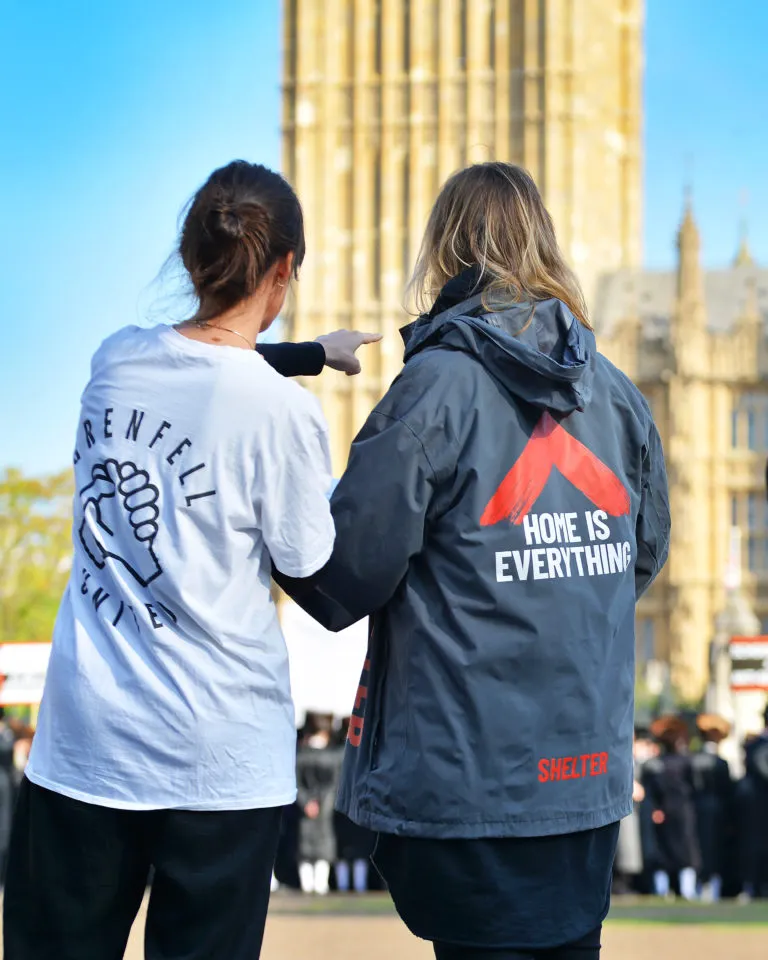The Grenfell Tower fire: five years on. MPs must deliver on promises with the Social Housing Regulation Bill
Published: by Tarun Bhakta

It’s been over five years since the fire at the Grenfell Tower, the Social Housing Regulation Bill is a once in a generation opportunity to deliver a better, fairer system for people living in social housing.
This week, MPs had their first of many opportunities to debate and vote on the Social Housing Regulation Bill. We’ll continue to watch closely as it progresses through the House of Commons.
Having already passed through the House of Lords with some significant improvements made, it is already a powerful and much needed piece of legislation. But, as the Bill enters the House of Commons, MPs must take the opportunity to ensure that the Bill is as robust as it can be. This means ensuring that it truly delivers on the promises made to people living in social housing – especially on proactive inspections and professionalisation and ultimately, that it gets into the statute book.
The long road to change
It’s been five and half years since the fire at Grenfell Tower and the government’s promises of a ‘new deal’ for social housing. Recent news stories and campaigns have highlighted how poorly managed and under-regulated social housing can have fatal consequences.
We’ve been campaigning alongside Grenfell United – representing the survivors and bereaved families from the Grenfell Tower fire – and many other campaigners, for big changes to the way social housing is managed and maintained.

Shelter and Grenfell United campaigners gather outside the House of Commons for the Social Housing (Regulation) Bill debate
A robust Social Housing Regulation Bill is central to delivering these changes by changing the law, to lay the foundations of a proactive system of regulation. One that listens to tenants when things go wrong and has their interests at its heart, as well as the tools to address the issues they’re facing.
After a decade of deregulation in the social housing sector, landlords became subject to lighter-touch regulation. By the time of the fire, while many social landlords were doing a good job, the system had become too weak to protect tenants and root out poorly performing landlords.
It’s now widely understood across the sector, as it has been for a long time by people living in social housing, that the system of regulation for social landlords must change. The government listened and introduced the Social Housing Regulation Bill in June, which has now started making its way through the House of Commons.
There are many positive changes proposed within the Bill. The regulator of social housing will be able to set new standards on safety and transparency and has stronger enforcement powers along with a new ‘access to information scheme’ for tenants.
In the House of Lords, the government stated that they are listening to Grenfell United and Shelter and have introduced measures within the Bill that seek to address proactive inspections and professionalisation within the sector. Jointly, these proposals would significantly change the way social housing is monitored and regulated, for the better.
But it is crucially important that MPs continue to push the government to ensure that the Bill does everything it can for people living in social housing.
Below are two of the key areas we’ll be following closely, as we continue the campaign:
- Proactive inspections
Limitations and loopholes in the current system of regulation results in the regulator of social housing (the body at the centre of social housing regulation) being unable to enforce standards and do its job properly.
A prime example is the regulator cannot proactively monitor landlords and the service they’re providing their tenants.
For years, the regulator has had to rely on news reports and tenant campaigns to raise the alarm when a landlord is seriously failing. This has resulted in issues being picked up after they have been affecting tenants for months, even years. By the time issues reach the regulator, they have often already become a serious threat to people’s health and wellbeing. The current system of light-touch regulation isn’t strong enough to enforce and uphold the standards we expect from social housing.
The Social Housing Regulation Bill paves the way for a significant shift to a more proactive approach. Removing the ‘serious detriment test’ will allow the regulator to intervene in issues ‘whether trivial or serious’, where it couldn’t before. Put simply, the regulator can now inspect and investigate landlords before a problem reaches a crisis point, not after.
The priority for Shelter and Grenfell United is to ensure that the regulator uses this new power to conduct proper, robust, and regular inspections of landlords.
While the Bill was in the House of Lords, our campaigning pushed the government to add a new clause that requires the regulator to set out a plan for an inspections regime and implement it.
After this week’s debate, we are still waiting to see a firm commitment from the government that the regulator will be expected to conduct routine inspections of all social landlords.
2. Professional qualifications
It is vital that social housing is professionally managed. Yet, at present, there is no requirement at all for staff involved in the management of social housing to meet professional standards.
To change this, we’ve been campaigning for changes to the Social Housing Regulation Bill that would require senior managers in social housing to be professionally qualified or experienced to do the job.
It’s been made clear that those responsible for managing the homes in Grenfell Tower failed to listen to the concerns that residents were raising about safety issues and wider conditions.
Yet we’re seeing too many tenants ignored by their landlords when they raise concerns and are not given the professional service they deserve. Evidence for this has been collected in multiple forums, from select committee evidence sessions to government consultations and reviews, to Shelter’s Social Housing Commission, and further.
Over 55% of households in the social rented sector had at least one household member with a long-term illness or disability and 26% are over the age of 65. Setting and upholding clear professional standards would help ensure that senior housing management staff have the knowledge and skills to manage teams of housing officers. This will help social landlords to better understand and respond to their tenants’ diverse needs, and hold the values and ethics needed to treat residents with dignity and respect.
As the Bill passed through the House of Lords, Baroness Hayman of Ullock and Baroness Sanderson put forward powerful arguments for a proper plan to professionalise the sector. In response, the government introduced a new clause to the Bill that would require the Regulator to set a new standard on ‘competency and conduct.’
This represents significant progress, but it’s still not clear if this is strong enough to bring social housing management in line with other social professions like teaching and social work – where qualifications and experience are a prerequisite to doing the job.
Ultimately, the Social Housing Regulation Bill must ensure that senior managers in social housing are professionally trained and qualified to manage social housing.
3. Getting the Bill into the statute book
While MPs continue to debate the Bill in the House of Commons, it is important to remember that tenants won’t see change until the law is changed. Over five years after the fire at Grenfell Tower, this Bill represents a huge milestone in the campaign for a better system for social tenants.
MPs must make sure it’s made law, so tenants can begin seeing the real change they’ve long been promised.